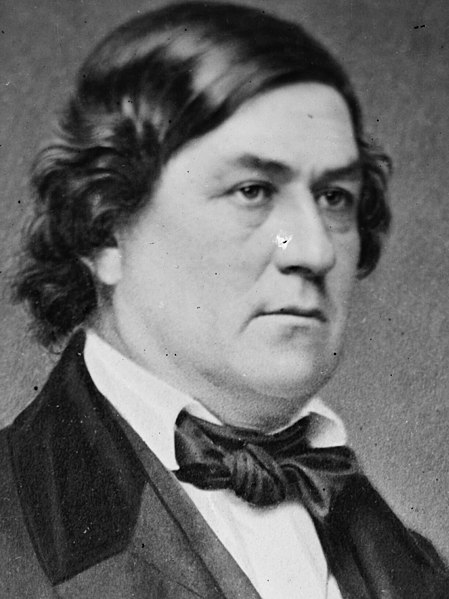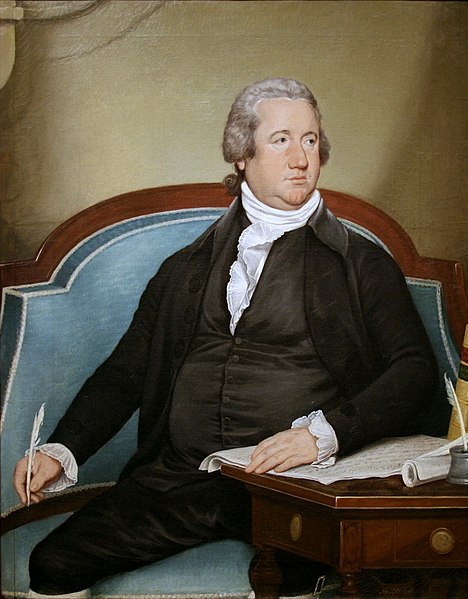Robert Mercer Taliaferro Hunter was an American lawyer, politician and planter. He was a U.S. representative, speaker of the House (1839–1841), and U.S. senator (1847–1861). During the American Civil War, Hunter became the Confederate States Secretary of State (1861–1862) and then a Confederate senator (1862–1865) and critic of President Jefferson Davis. After the war, Hunter failed to win re-election to the U.S. Senate, but did serve as the treasurer of Virginia (1874–1880) before retiring to his farm. After fellow Democrat Grover Cleveland was elected President of the United States in 1884, Hunter became the customs collector for the port of Tappahannock until his death.
Robert M. T. Hunter
Robert Mercer Taliaferro Hunter
1864 CSA $10 banknote depicting R.M.T. Hunter.
Hunter in later life
Speaker of the United States House of Representatives
The speaker of the United States House of Representatives, commonly known as the speaker of the House, is the presiding officer of the United States House of Representatives. The office was established in 1789 by Article I, Section II, of the U.S. Constitution. By custom and House rules, the speaker is the political and parliamentary leader of the House and is simultaneously its presiding officer, de facto leader of the body's majority party, and the institution's administrative head. Speakers also perform various other administrative and procedural functions. Given these several roles and responsibilities, the speaker usually does not personally preside over debates—that duty is instead delegated to members of the House from the majority party—nor regularly participate in floor debates.
Speaker of the United States House of Representatives
Patrick McHenry acted as speaker pro tempore in October 2023, following the removal of Kevin McCarthy.
Frederick Muhlenberg (1789–1791, 1793–1795) was the first speaker.
Henry Clay (1811–1814, 1815–1820, 1823–1825) used his influence as speaker to ensure the passage of measures he favored.








